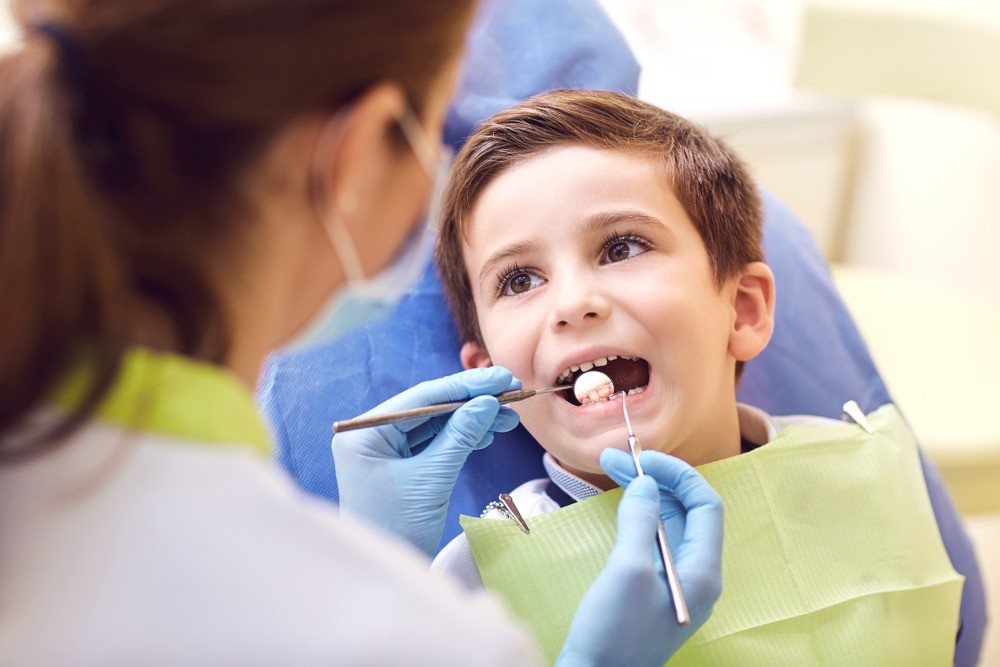The journey of your child's oral development is a fascinating one, beginning with the arrival of that first tiny tooth and continuing through adolescence. Establishing a strong foundation of healthy habits during these formative years is crucial for a lifetime of confident smiles. Understanding the key stages and the role of specialized pediatric dentistry in Austin can empower you to guide your child towards optimal oral health.
The Arrival Of The First Tooth And Early Care
The eruption of your baby's first tooth is a significant milestone, typically occurring around six months of age, although it can vary. Even before the first tooth appears, gentle gum massage with a clean, damp cloth can help acclimate your baby to oral care. Once teeth emerge, it's time to start brushing gently with a soft-bristled toothbrush and a smear of fluoride toothpaste (about the size of a grain of rice).
These early habits lay the groundwork for a lifetime of good oral hygiene. Regular visits to a pediatric dentist in Austin are recommended within six months of the first tooth's eruption or by the child's first birthday. These early appointments allow the dentist to monitor your child's oral development, provide guidance on proper cleaning techniques, and address any potential concerns proactively.
Introducing a consistent brushing routine early on helps your child become accustomed to the sensation and understand its importance. Making it a positive and fun experience, with songs or engaging toothbrushes, can further encourage cooperation. Remember that consistency is key in establishing lifelong healthy habits.
Navigating The Toddler Years: Establishing Routines
As your child grows into toddlerhood, their oral care routine becomes more established. By age three, children should be using a pea-sized amount of fluoride toothpaste and learning to spit out the excess after brushing. While they may want to brush independently, supervision is still necessary to ensure they are cleaning all tooth surfaces effectively.
Regular dental check-ups every six months remain crucial during this stage. Pediatric dentists are specially trained to work with young children, making the experience comfortable and non-threatening for them. They will monitor tooth eruption, check for early signs of decay, and provide guidance on managing habits like thumb sucking or pacifier use, which can impact tooth alignment.
Introducing flossing once teeth start touching is another crucial step in the toddler years. While it may require your assistance initially, incorporating it into your daily routine helps establish this essential habit of removing food particles and plaque from between your teeth. Positive reinforcement and patience are vital during this learning process.
The Preschool And Early Elementary Years: Building Independence
As your child enters preschool and early elementary school, they become more capable of taking responsibility for their oral hygiene. However, continued parental supervision and encouragement are still essential. Ensure they brush thoroughly twice a day for two minutes and floss daily.
Regular visits to the pediatric dentist in Austin continue to play a vital role in monitoring their oral development and addressing any emerging issues. This is also a time when sealants, protective coatings applied to the chewing surfaces of back teeth, may be recommended to prevent cavities in these vulnerable areas. Fluoride treatments in the dental office can also provide extra protection against decay.
Educating your child about the importance of a healthy diet and limiting sugary snacks and drinks is another key aspect of their oral development during these years. Explain how sugar can contribute to tooth decay and encourage healthy alternatives like fruits, vegetables, and water. Empowering them with knowledge helps them make informed choices about their oral health.
Adolescence: Maintaining Healthy Habits For Life
Adolescence presents new challenges to oral health, including hormonal changes that can impact gum health and the potential for increased sugar intake from snacks and sugary beverages. Maintaining consistent brushing and flossing habits remains crucial during this time. Regular check-ups with a pediatric dentist or transitioning to a general dentist who is comfortable treating adolescents remain essential.
This is also a time when orthodontic treatment, if needed, is often initiated to correct misaligned teeth and improve bite function. Pediatric dentists can identify the need for orthodontic intervention early and provide referrals to orthodontists. Encouraging your teenager to maintain good oral hygiene throughout their orthodontic treatment is crucial for achieving optimal results.
Reinforcing the importance of healthy lifestyle choices, including avoiding tobacco and excessive consumption of sugary drinks, is crucial for maintaining long-term oral health. By this stage, the healthy habits established in earlier years should ideally be ingrained, setting the stage for a lifetime of healthy smiles. Continuing to emphasize the connection between oral health and overall well-being will reinforce these positive behaviors, promoting a healthier lifestyle.
Conclusion
Guiding your child's oral development from the very first tooth requires patience, consistency, and the support of a knowledgeable dental professional. By understanding the unique needs of each developmental stage and partnering with a dedicated pediatric dentistry in Austin, you can equip your child with the tools and habits necessary for a lifetime of healthy smiles. Starting early, being consistent, and making oral care a positive experience will pave the way for a future filled with confident, healthy smiles for your child.






